#upsccoaching
Text
MALARIA VACCINE
The Government of India has set a target to eliminate malaria in India by 2027.
It has developed a National Framework for Malaria Elimination (2016-2030) and a National Strategic Plan for Malaria Elimination for five years.
India shifted its focus from malaria control to elimination.
A roadmap was established to eliminate malaria in 571 out of India’s total 678 districts by 2022.
The Malaria Elimination Research Alliance-India (MERA-India) was formed under the Indian Council of Medical Research (ICMR).
The subject of "Malaria Vaccine" is covered in this article's coverage of "Daily Current Affairs". The Science and Technology segment of the UPSC CSE test has applicability for this topic. Rishabh has researched and written the article. Additionally, our faculty has reviewed this article. Click the “Malaria Vaccine” link to see the story's original version.
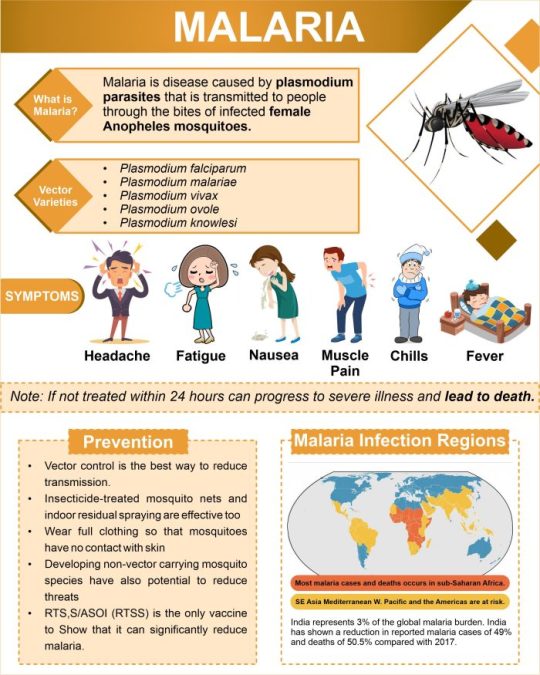
Plutus IAS has received praise for its continued success in offering top-notch and reasonably priced IAS coaching in Karol Bagh Delhi. Our students' everlasting gratitude proves our dedication to developing the next generation of Indian bureaucrats and administrators.
The importance of everyday current affairs cannot be overstated if you wish to succeed in competitive tests like Civil Services. On its website, Plutus IAS includes a separate section for current affairs.
#ias coaching in delhi#upscaspirants#upsccoaching#best ias coaching in delhi#civil services examination#ias#upsc exam preparation#education#iascoaching#plutus ias#malaria vaccine
60 notes
·
View notes
Photo

Current Affairs | 18-10-2022 | L2A
1) ADHD is one of the most common neurodevelopmental disorders of childhood.
2) ADHD is usually first diagnosed in childhood and often lasts into adulthood.
3) Children with ADHD may have trouble paying attention, controlling impulsive behaviors (may act without thinking about what the result will be), or be overly active Sometimes.
Signs and Symptoms:
1) It is normal for children to have trouble focusing and behaving at one time or another.
2) However, These childrens with ADHD do not just grow out of these behaviors.
3) The symptoms are continues and it can be severe, and can cause difficulty at school, at home, or with friends.
4) Mostly signs are Daydream a lot, Forget or lose things a lot, Squirm or fidget, Talk too much, Make careless mistakes or take unnecessary risks, Have a hard time resisting temptation, Have trouble taking turns, Have difficulty getting along with others.
#currentaffairs#currentaffairs2022#currentaffairsquiz#L2A#learn2achieve#IAS#UPSC#upscpreparation#upscmotivation#upsccoaching#explore#explorepage#ADHD#adhdawareness#adhdlife
29 notes
·
View notes
Text
youtube
2 notes
·
View notes
Text
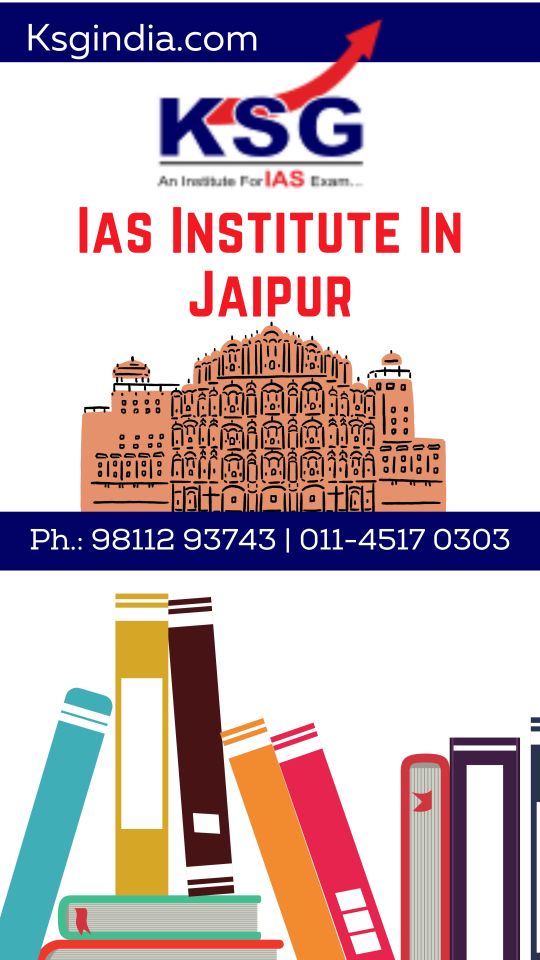
8 notes
·
View notes
Text
Understanding the UPSC CSE Exam: Insights into Exam Pattern and Eligibility Criteria
Are you aspiring to become a civil servant and serve the nation with dedication and commitment?
If so, the Union Public Service Commission (UPSC) Civil Services Examination (CSE) is your gateway to a prestigious career in the Indian bureaucracy. In this blog, we will delve into the crucial aspects of the UPSC CSE including the exam pattern and eligibility criteria, And also how Crack Academy to help you chart your path to success to crack UPSC.
1. What is UPSC CSE? The UPSC CSE is a highly competitive and renowned examination conducted by the Union Public Service Commission (UPSC) to recruit candidates for various prestigious civil services in India. These civil services include the Indian Administrative Service (IAS), Indian Police Service (IPS), Indian Foreign Service (IFS), and many others.
2. Understanding the UPSC CSE Exam Pattern: The UPSC CSE is a three-tier examination process:

2.1. Preliminary Examination:
It is the first stage of the UPSC CSE and consists of two objective-type papers: General Studies Paper-I and General Studies Paper-II (popularly known as the Civil Services Aptitude Test or CSAT).
Both papers carry equal weightage (200 marks each) and are conducted in offline mode (pen and paper-based).
General Studies Paper-I covers subjects like History, Polity, Economy, Geography, Science & Technology, Environment, and Current Affairs.
General Studies Paper-II (CSAT) evaluates candidates' aptitude in comprehension, logical reasoning, analytical ability, interpersonal skills, decision-making, and more.
2.2. Main Examination:
The Main Examination is the second stage of the UPSC CSE and consists of nine papers, out of which two are qualifying in nature: English and any Indian language of your choice.
The remaining seven papers are evaluated for merit and cover topics such as Essay, General Studies I, II, III, and IV, and Optional Subject Paper I and II.
Each paper is descriptive in nature, and the total marks for the Main Examination are 1750.
2.3. Personality Test (Interview):
The third and final stage of the UPSC CSE is the Personality Test, also known as the Interview round.
It is conducted to assess a candidate's personality, communication skills, leadership qualities, and suitability for a career in civil services.
The interview carries 275 marks and contributes to the final ranking of candidates.
3. UPSC Eligibility Criteria: Before applying for the UPSC CSE, candidates must meet certain eligibility criteria:
3.1. Nationality:
The candidate must be a citizen of India.
For the Indian Administrative Service (IAS) and the Indian Police Service (IPS), candidates must be Indian citizens. For other services, candidates from Nepal, Bhutan, Tibetan refugees, and PIOs (Persons of Indian Origin) are also eligible.
3.2. Age Limit:
The candidate must be at least 21 years old on August 1st of the examination year.
The upper age limit varies based on the candidate's category:
General Category: 32 years
OBC Category: 35 years
SC/ST Category: 37 years
PwD Category: 42 years (for General and OBC), 45 years (for SC/ST)
3.3. Educational Qualification:
The candidate must hold a bachelor's degree from any recognized university or institution.
Final-year students awaiting results can also apply for the Preliminary Examination but need to submit proof of passing the examination while applying for the Main Examination.

4. Tips to Crack UPSC CSE: Preparing for the UPSC CSE requires dedication, perseverance, and a well-structured approach. Here are some valuable tips to help you in your preparation:
4.1. Understand the Syllabus: Thoroughly go through the UPSC CSE syllabus and exam pattern to understand the topics and the weightage of each subject. Focus on important areas while preparing.
4.2. Create a Study Plan: Develop a comprehensive study plan that allocates sufficient time for each subject. Make sure to include regular revisions and mock tests.
4.3. Stay Updated with Current Affairs: Read newspapers, watch news channels, and follow reliable online sources to stay updated with current affairs and contemporary issues.
4.4. Practice Answer Writing: Answer writing is crucial for the Main Examination. Practice writing concise, coherent, and well-structured answers within the prescribed word limits.
4.5. Take Mock Tests: Regularly attempt mock tests for both Preliminary and Main Examinations to gauge your preparation level and work on improving your weak areas.
4.6. Choose Optional Subject Wisely: If the UPSC CSE allows an optional subject, choose it wisely based on your interest, familiarity, and availability of study material.
4.7. Maintain Good Health: A healthy mind and body are essential for effective preparation. Ensure proper sleep, exercise, and a balanced diet.
4.8. Seek Guidance: Consider joining a reputed coaching institute or seek guidance from experienced mentors to get valuable insights and study materials.

Conclusion
Cracking the UPSC CSE is undoubtedly a challenging task, but with dedication, hard work, and a structured approach, it is achievable. Understanding the UPSC CSE exam pattern and eligibility criteria is the first step in the right direction. Aspire high, stay motivated, and embark on this journey with always available, accessible, and affordable CRACK ACADEMY and you might soon find yourself serving the nation as a proud civil servant. Good luck!
#upsc#upscexam#upsc cse#upsccoaching#upsc prelims#upsc preparation#upsc eligibility#upsccurrentaffairs
3 notes
·
View notes
Text

The best test series for ethics for UPSC CSE?
The UPSC exam is the most comprehensive and dynamic one available. These are the main causes for increasing the exam's complexity, which has increased competition among the many applicants. A serious candidate who wants to succeed in this exam and acquire a competitive edge over other candidates must take all of the exam's modules. Among these modules, ethics is one that is equally important and requires that a candidate have competence in it. A person must be able to convey their opinions and logical reasoning in writing in order to succeed in this field. Doing so could help them improve their exam scores overall. Hence, mastering all theoretical concepts and learning all basic ethical terminology is not sufficient. Thus, EDEN IAS, one of the most reputable and well-known institutions, has created a special ethics test series for UPSC. These tests were also created under the supervision of Tirthankar Roychowdhary Sir, one of the top professors for ethics (GS IV), in accordance with the foregoing attitude.
BENEFIT OF THIS PROGRAM
It is well known that this curriculum benefits all students equally, benefiting both those who are just beginning their studies and those who are already familiar with the major ideas of the subject as a whole. The test series is made for both beginners and students who are already familiar with the format of the exam. It will assist all aspiring candidates in gaining knowledge and competency in this specific field so they can improve their overall ranking and score.
For More Information Visit Our Site: https://edenias.com/ethics-test-series/
#upsc#ias#edenias#upsccoaching#iascoaching#govtexam#ethicsgs4#civilservices#upscaspirants#upsc mains#education#online classes#upsc prelims#upsc preparation#indianadministrativeservices#ias coaching in delhi#futureias#lbsnaa#dreamias#upsctopper#iasaspirant
2 notes
·
View notes
Text
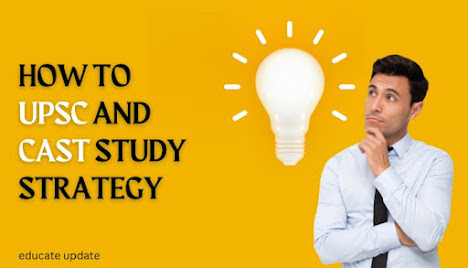
how to upsc and cast study strategy
UPSC stands for the Union Public Service Commission, which is a central agency in India responsible for conducting civil service examinations and selecting candidates for various positions in the government.
2 notes
·
View notes
Text
Forms of Government (Communism)
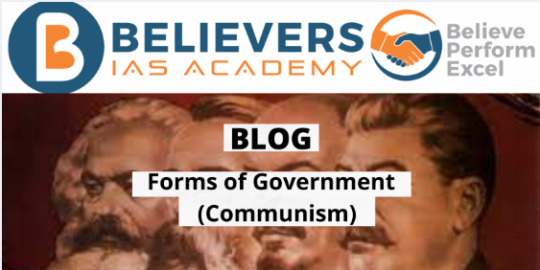
Part 3
Visit : Believers IAS Academy
Communism
Communism is a socio-political, philosophical, and economic ideology developed by Karl Marx and Friedrich Engels.
This ideology was later adapted by Lenin during the Bolshevik Revolution which allowed them to take power in Russia in 1917.
The key feature of a communist country is the lack of private property, as all the means of production are under the control of the state.
Another major feature of communist nations is their intolerance towards religion. Unlike the western nations who practice separation of church and state, communist nations often suppress organised religion and religious practices.
This comes as no surprise since the founder of communist ideology, Karl Marx himself has criticised religion saying that “Religion is the opium of the people.”
During the Cold War era, when the world became divided along ideological lines, the communist nations led by USSR became the counter to US and its allies.
Communist countries often have a one-party ruling system with the state and party being the same entity.
Currently few countries in the world have a communist form of government.
Various leaders adapted communist ideology to suit their own situations, hence communist form of government can be divided into;
Soviet Communism:
Soviet Union was the first communist country in the world as well as the leader of the communist world till its disintegration in 1991.
Soviet model of communism was developed by Vladimir Lenin and was more suited towards the needs of Russia and its people.
While Marx and Engels focused on the industrial workers and their problems in a industrialised Germany, Lenin gave equal focus on both Agricultural Labourers and Industry workers due to the semi industrialised nature of Russia in the 20th century.
Soviet Union also gave heavy emphasis in the spread of communism throughout the world and founded the Communist International or Comintern to spread communist ideology around the world.
Soviet Union also gave financial and military support to the various communist nations around the world with Warsaw Pact being the largest such grouping.
The slow speed of economic development coupled with massive spending on military caused the collapse of the Soviet Union in 1991
Chinese Communism
China is the largest and most powerful communist country in the world at present, though it has a much smaller influence around the globe.
Chinese communist ideology was developed by Mao Zedong in the latter half of the 20th century and is modified to suit the Chinese conditions.
Chinese communism gave heavy emphasis on agriculture and land reforms while little to no concern was given to the industrial workers due to China’s lack of industries.
Chinese communism also did not give much focus on developing communist ideology around the world and was more focused on China’s strategic requirements.
Due to the Sino-Soviet split, China became closer to the US from the 1960s which culminated in communist China gaining the permanent seat in UN Security Council.
China essentially left the state led economic model in the 1980s under Deng Xiaoping, which resulted in massive economic growth which propelled it to become the second largest economy in the world today.
To know more about China click here
Vietnamese Communism
Communism in Vietnam developed under Hồ Chí Minh in the 1950s and North Vietnam became a communist nation.
The entire Vietnam was united under a communist government after the end of US-Vietnam war (1955–1975).
They follow the Marxist-Leninist ideology of democratic Centralisation.
The Viet Cong, an armed communist revolutionary organization in South Vietnam, are responsible for the defeat of the US forces during the Vietnam war.
Currently Vietnam is also in the process of opening up its market to globalisation and is one of the fastest growing economies in the world.
North Korean Communism
North Korea is popularly known as the Hermit Kingdom and as such not many things are known about its socio-political situation outside the country.
The Korean communism is unique as it follows a philosophy known as the Juche which promotes national independence and development through the efforts of the popular masses.
It forms a unique mix of ultra-nationalism along with autocratic subservience to their leader and state ownership of every resource including manpower.
North Korean polity is unique amongst communist nations as they are the sole communist country which has a family serving as the de facto head of nation.
They are also the only known Necrocracy as the Supreme Leader of the country still is Kim Il-sung who died in 1994.
The North Korean state is all mighty within the country and controls every aspect of the citizens life, personal as well as public.
It is known that each North Korean citizen has only a limited number of haircuts that they are allowed to have.
They also practice conscription, and each North Korean citizen, man or women has to compulsorily serve in the armed forces.
Other Communist nations such as Cuba or Laos maintain similar political structure and they are also in various stages of opening their economy.
India also has communist parties as mainstream such as Communist Party of India and Communist Party of India (Marxist).
The Naxalite insurrection is also following communist ideology and is often said to receive funding from China.
To know more about Absolute Monarchy click here
#iasexam#ias coaching#iaspreparation#IAS officer#iasaspirant#iascoaching#ias academy#UPSC#Upscexam#upsccoaching#upscmotivation#upscaspirants
2 notes
·
View notes
Text
How to clear UPSC CSE in the first attempt
Clearing UPSC Civil Services is not an easy task. But nothing is impossible.
Here are a few useful tips to clear the UPSC Civil Service exam in your first attempt.
1. Understanding the syllabus
Read the syllabus prescribed by the UPSC. Download the syllabus from the UPSC website and understand the syllabus. Take a print of the syllabus and keep it with you while preparing.
2. Previous Year Question
Download the previous years questions from the UPSC site and analyze the question trends. Also, make note of the weightage of questions on various topics.
3. Study plan
Make a customized study plan. Break the entire year into multiple phases. Start your preparation from the topics you feel easy. This will build your confidence.
4. NCERT
Reading NCERT is the first step in the UPSC CSE preparation. NCERT books are lucid and easy to understand. NCERT books will lay a strong foundation for the topics you will read later in great detail.
5. Reference books
In the market, an ocean of books is available for the UPSC examination preparation. But an aspirant has to be wise in selecting reference books. pick a book for each subject. Multiple reference book reading for the same subject will not bring any drastic difference to your marks.
6. Newspaper
Newspaper is like a holy book for UPSC aspirants. Read one national newspaper of your choice. Make a note of all the relevant articles covered and link the day-to-day happening to the subjects you read.
7. Notes
Note-making is a tedious task. But this will help you in the revision phase. Prepare separate notes for GS-1,2,3,4.
8. Optional paper
Optional paper decides the fate of every UPSC aspirant. Go through the syllabus of optional papers given in the syllabus and select the one in which you are comfortable. As the optional paper is descriptive in nature, writing practice is a must.
9. Mock tests
Take up as many mock tests as you can. Practice makes one perfect. Mock tests will help in analyzing our weaknesses and thus we can overcome the mistake we commit.
10. Revision
Revision is the key to success. Every individual will tend to forget what he /she read in a week's time. To overcome that the only way is to revise in a regular manner.
I have written an elaborate blog on the same topic on my website. Here is the link for that blog https://sgiasacademy.in/how-to-clear-upsc-civil-services-examination-in-the-first-attempt/.
4 notes
·
View notes
Text
Top UPSC Coaching Institutes in Delhi: Guide to Choosing the Best Coaching Center for Civil Services Exam Preparation

Discovering the top UPSC coaching institutes in Delhi is crucial for aspirants aiming to excel in the civil services exam. This comprehensive guide offers insights into choosing the best coaching center tailored to your needs.
From faculty expertise to course structure and success rates, explore key factors to consider before making your decision.
With the right guidance and support, navigating the complexities of UPSC preparation becomes more manageable. Whether you prioritize affordability, experienced mentors, or comprehensive study materials, this guide equips you with the knowledge to make an informed choice.
Elevate your exam preparation journey and maximize your chances of success by selecting the best UPSC coaching institute in Delhi for your civil services aspirations.
Website: www.vedantaiasacademy.co.in
0 notes
Text
Mastering Time Management for UPSC Preparation: A Guide to Success
The Union Public Service Commission (UPSC) exam is known for its rigor and extensive syllabus, requiring aspirants to demonstrate mastery over a wide range of subjects. One of the critical success factors in UPSC preparation is effective time management. Given the vast amount of material to cover, balancing study sessions, revision, and current affairs can be overwhelming. In this blog, we’ll explore how you can optimize your time, drawing insights from experienced aspirants and experts from the best IAS coaching in Kolkata, such as Saima Khan, and discuss the importance of value addition material and current affairs magazines in streamlining your preparation.
Understanding the UPSC Syllabus and Exam Structure
Before diving into time management strategies, it’s essential to understand the UPSC exam’s structure and the vastness of its syllabus. The UPSC exam consists of three stages:
Preliminary Examination: Consisting of two objective-type papers — General Studies (GS) and Civil Services Aptitude Test (CSAT). The GS paper is the key focus, as it determines eligibility for the Mains.
Mains Examination: Consisting of nine descriptive papers, including essay writing, general studies, and optional subjects.
Personality Test (Interview): Assessing candidates’ personality traits, knowledge, and communication skills.
The Need for Effective Time Management
With a syllabus that covers history, geography, polity, economy, science, technology, environment, ethics, and more, managing your time effectively is crucial. Here’s why:
Consistency is Key: The UPSC preparation journey is lengthy, often spanning more than a year. Consistency in study habits ensures steady progress.
Balancing Act: You need to balance subject-specific study, current affairs, revision, and practice tests.
Avoiding Burnout: Effective time management prevents burnout, allowing you to maintain focus and motivation.
Time Management Strategies for UPSC Preparation
Set Clear Goals and Milestones
Break down the syllabus into manageable sections and set specific goals for each. For example, aim to cover a particular subject within a week or complete a set number of practice questions per day.
2. Create a Daily Study Schedule
Develop a daily routine that includes dedicated time for different activities: subject study, current affairs reading, practice tests, and revision. Ensure the schedule is realistic and allows for flexibility.
3. Use Value Addition Material
Value addition material, such as summary notes, flashcards, and charts, can help you grasp complex concepts quickly. Best IAS coaching in Kolkata, like Saima Khan’s institute, often provides such resources to their students, streamlining the learning process.
4. Incorporate Current Affairs into Your Routine
Current affairs are a significant component of the UPSC exam. Allocate time each day to read reputable current affairs magazines and make notes on key events. IAS coaching in Kolkata often provides structured current affairs material, making it easier to stay updated.
5. Practice with Mock Tests and Previous Papers
Regular practice with mock tests and previous years’ question papers helps you understand the exam pattern and identify areas for improvement. Schedule mock tests at regular intervals to track your progress.
6. Use Time Management Techniques
Techniques like the Pomodoro Technique (working in focused intervals with short breaks) can boost productivity. Experiment with different methods to find what works best for you.
7. Take Breaks and Prioritize Self-Care
Don’t forget to schedule regular breaks and time for relaxation. Exercise, meditation, and hobbies can help reduce stress and improve focus.
8. Seek Guidance from Coaching Centers
IAS coaching in Kolkata offers valuable guidance on time management. Experienced mentors like Saima Khan provide insights into effective study techniques and exam strategies. Don’t hesitate to seek advice from coaching experts.
Conclusion
Time management is a fundamental skill for UPSC aspirants. By setting clear goals, creating a structured study schedule, leveraging value addition material, and incorporating current affairs, you can navigate the extensive UPSC syllabus effectively. Regular practice with mock tests and seeking guidance from the best UPSC coaching in Kolkata will further enhance your preparation. Remember to maintain balance, prioritize self-care, and stay consistent. With the right approach, you’ll be well-equipped to tackle the UPSC journey and achieve your dreams of becoming a civil servant.
#upscnotes#upsc coaching in kolkata#upsc.gov.in#upscaspirants#upsccoaching#upsc2024#upsc#upscprelims#civil services#iaspreparation#ias preparation#ias coaching#iasofficer
0 notes
Text

Plutus IAS Delhi
#ias coaching in delhi#upscaspirants#upsccoaching#best ias coaching in delhi#upsc exam preparation#education#iascoaching#civil services examination#ias#plutus ias
3 notes
·
View notes
Photo
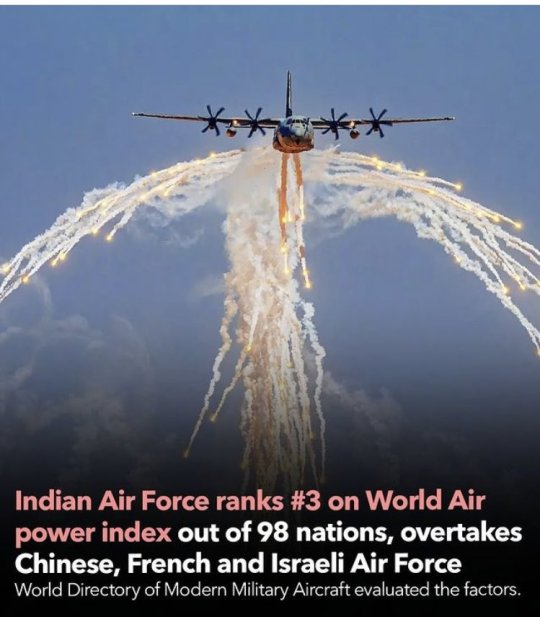
Current Affairs | L2A | 26/05/2022
India beats China to become the world’s third strongest air force in the Global Air Powers Ranking for 2022.
According to the Global Air Powers Ranking of 2022 by the World Directory of Modern Military Aircraft (WDMMA), the Indian Air Force has emerged as the third strongest Air Force in the world after America and Russia. The Indian Air Force has not only overtaken the Chinese Air Force but also the Japan Air Self-Defense Force, the Israeli Air Force, and the French Air and Space Force in terms of strength, as per the report.
Presently, the WDMMA tracks 98 countries, covering 124 air services and following a total of 47,840 aircraft.
#currentaffairs#currentaffairs2022#strongest#airforce#india#upsccoaching#upscnotes#upsc#upscmains#IAS#iasmotiivation#Prelims#L2A#learn2achieve
3 notes
·
View notes
Text
Best IAS Academy in Coimbatore |Dheeran IAS Academy
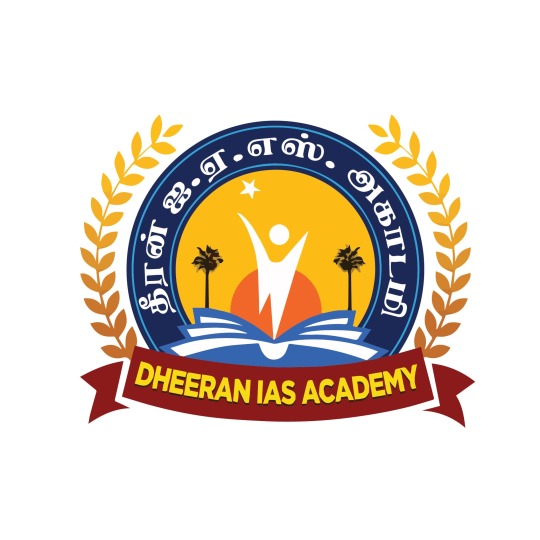
1.Introduction: Navigating the UPSC Civil Services Exam
This ultimate guide will be your trusted companion on your journey from an aspirant to a successful civil servant. We will cover from the basics to offering valuable insights on exam preparation tips and strategies. So, whether you're a fresh graduate, a working professional, or someone who's been contemplating this challenge for a while, this article is your treasure trove to conquer the realm of
UPSC civil services exam preparation and emerge victorious!
The UPSC Civil Services Exam, conducted by the Union Public Service Commission is your gateway to an illustrious career in the civil services. Being a civil servant comes with the possibility of shaping governance structure and creating changes for the betterment of people and the nation.
2.Various Posts:
When you attempt civil services exams conducted by UPSC, you have the possibilities of choosing any of the following fields of services.
Civil Service Job
Indian Administrative Service (IAS) – All India Services
Indian Forest Service (IFoS) – All India Services
Indian Police Service (IPS) – All India Services
Indian Foreign Service (IFS)
Indian Audit and Accounts Service
Indian Civil Accounts Service
Indian Corporate Law Service
Indian Defence Accounts Service
Indian Defence Estates Service
Indian Customs & Central Excise Service
Indian Defence Accounts Service
Indian Information Service
Indian Postal Service
Indian Ordnance Factories Service (Assistant Works Manager, Administration)
Indian P&T Accounts and Finance Service
Indian Railway Protection Force Service
3.Eligibility Criteria:
To be qualified for these jobs there are some basic conditions that must be met by the applicants. The eligibility criteria for various posts given below can be relaxed based on various criteria.
PwBD refers to Persons with Benchmark Disability.
Age limits
General OBC SC/ST
PwBD
General
PwBD
OBC
PwBD
SC/ST
Minimum
age
21 21 21 21 21 21
Maximum
age
32 35 37 42 45 47
Minimum Educational Qualification:
Requirement:
Graduate degree from recognized universities or
institutions in India
Universities or Institutions
recognized by:
Central or State Legislature, or Act of Parliament,
or UGC Act 1956
Indian Revenue Service (Income Tax)
Indian Trade Service (Grade III)
Indian Railway Management Service
Armed Forces Headquarters Civil Service (Section Officer’s Grade)
Delhi, Andaman and Nicobar Islands, Lakshadweep, Daman & Diu and Dadra & Nagar
Haveli Civil Service (DANICS)
Delhi, Andaman and Nicobar Islands, Lakshadweep, Daman & Diu and Dadra & Nagar
Haveli Police Service (DANIPS)
Pondicherry Civil Service (PONDICS)
Pondicherry Police Service (PONDIPS)
Number of Attempts:
General Category: 6 attempts within age limit
Economically Weaker Sections (EWS): 6 attempts within age limit
Scheduled Castes (SC): Unlimited attempts within age limit
Scheduled Tribes (ST): Unlimited attempts within age limit
Other Backward Classes (OBC): 9 attempts within age limit
Persons with Benchmark Disability
(PwBD):
9 attempts for General, EWS, OBC
within age limit
Nationality for different services:
For IAS, IFS, IPS Candidate must be a citizen of India
For other services: a) Citizen of India
b) Subject of Nepal
c) Subject of Bhutan
d) Tibetan refugee in India before 01-01-1962
e) Person of Indian origin, migrated from specified countries
4.Exam Pattern:
Understanding the pattern of each stage will help you build your preparation strategy. Familiarize yourself with the question patterns by solving previous years' papers. This will help reduce the nerves while attending the exam. When you understand your exam pattern you will know which topic to focus on and the mark distribution for different topics. You can build your study plan according to your necessity, utilize the time effectively on topics that will score you a good amount of marks. The exam will be happening in 3 stages,
Preliminary exam
Main exam
Personality test / personal interview
4.1 Preliminary Exam:
This exam is qualifying in nature and won’t be counted towards final marks. These are multiple choice questions where penalties exist for wrong answers.
Sl
No.
Paper No. of
question
Marks
per
question
Penalty for
wrong
answer
Total
Marks
Durati
on
1 General Studies
Paper I
(GeneralStudies)
100 2 ⅓ of allocated
mark /
-0.66 marks for
every incorrect
answer.
200 2
hours
2 Paper II (Civil
Services Aptitude
Test (CSAT)
80 2.5 ⅓ of allocated
mark /
-0.83 marks for
every incorrect
answer.
200 2
hours
NOTES:
The marks you obtain in prelims is qualifying in nature and will not be counted for the final ranking after Mains and Interview..
It is mandatory for the candidate to appear in both the Papers of Civil Services (Prelim) Examination for the purpose of evaluation. Therefore, a candidate will be disqualified if he/she does not appear in both the papers of Civil Services (Prelim) Examination.
You have to qualify with a minimum of 33% in CSAT for your general studies paper to be considered for correction
4.2 Main Exam:
When you clear the Prelims, you can advance to the Mains. It comprises of nine papers, including Essay, General Studies, and an Optional subject. The marks obtained are counted to your final ranking.
Paper Subject Marks
Paper-I Essay 250
Paper-II General Studies – I (Indian Heritage and Culture, History
and Geography of the World and Society)
250
Paper-III General Studies – II (Governance, Constitution, Polity,
Social Justice and International Relations)
250
Paper–IV General Studies – III (Technology, Economic Development,
Biodiversity, Security and Disaster Management)
250
Paper–V General Studies – IV (Ethics, Integrity and Aptitude) 250
Paper–VI Optional Subject – Paper I 250
Paper–VII Optional Subject – Paper II 250
Sub Total 1750
Personality Test 275
Total Merit 2025
NOTES: For the two qualifying papers you need to score 25% marks to qualify i.e. 75/300.
● Qualifying Paper A – Indian Language – 300.
● Qualifying Paper B – English Language – 300.
4.3 Personality Test:
The personality test is conducted by the panel of judges or the interview panel and they will be assessing your personality traits and qualities and whether they match with requirements for a civil servant. Emphasize traits like integrity, honesty, and a sense of duty when discussing your motivations for civil services. This carries a total 275 marks.
0 notes
Text
Top UPSC Coaching Classes in Bhandup
Best IAS Coaching Institute in Bhandup: The Prayas India
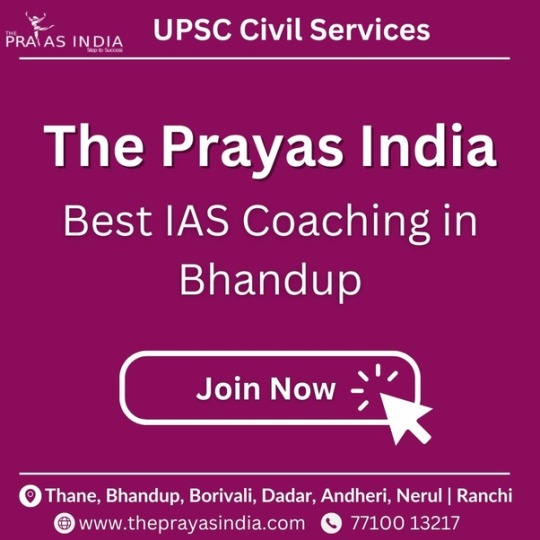
In the quest for UPSC success, finding the right coaching institute is akin to discovering a guiding light through the labyrinth of preparation. In the bustling suburb of Bhandup, one name shines brightly amidst the array of choices – The Prayas India. Renowned for its exceptional track record and holistic approach, The Prayas India stands tall as the beacon of UPSC coaching excellence in Bhandup.
The UPSC examination, often dubbed as the 'mother of all exams', demands rigorous preparation and strategic guidance. Understanding this, The Prayas India offers a comprehensive curriculum meticulously crafted to cover every aspect of the UPSC syllabus. From insightful lectures by seasoned educators to comprehensive study materials, every resource at The Prayas India is geared towards empowering aspirants to excel in their UPSC journey. Moreover, the institute's personalized attention ensures that each student receives tailored guidance, nurturing their strengths and addressing their weaknesses effectively.
For those embarking on the UPSC odyssey, enrolling at The Prayas India is not just a choice but a commitment to excellence. With a proven track record of producing top-notch results, backed by a team of dedicated mentors, success becomes an achievable reality. To embark on your UPSC journey with The Prayas India, simply reach out at 07710013217 and take the first step towards realizing your aspirations.
In summary, when it comes to UPSC coaching in Bhandup, The Prayas India emerges as the undisputed leader, offering unparalleled guidance and support to aspirants. With its student-centric approach, comprehensive curriculum, and stellar results, The Prayas India stands as a testament to excellence in UPSC coaching. Take the leap towards success with The Prayas India and transform your UPSC aspirations into reality.
#UPSC#UPSCcoaching#ThePrayasIndia#Bhandup#CivilServicesExam#UPSCPreparation#Success#Guidance#Aspirants#Education#CoachingInstitute#ExamPreparation
0 notes
Text
Best IAS Coaching in Coimbatore
Dr. Abdul Kalam IAS Academy is one of the best academy at Coimbatore District. Are students searching where to get best IAS coaching in Coimbatore district? Dr. Abdul Kalam IAS Academy is the best IAS coaching academy you have been waiting for. Our main objective is to make all the trainees achieve their goal of passing the IAS exam. So far not only the students but also their parents are very happy with our training. We will not only provide training but also guide the students in the best way how a government officer should conduct himself after completing the training and passing the exam. Join Dr. Abdul Kalam IAS Academy if you want to get our best IAS coaching.
For more info: https://abdulkalamiasacademy.com/
CALL :9600594078
0 notes